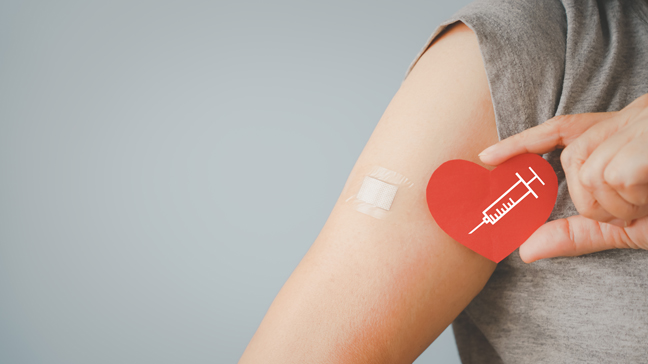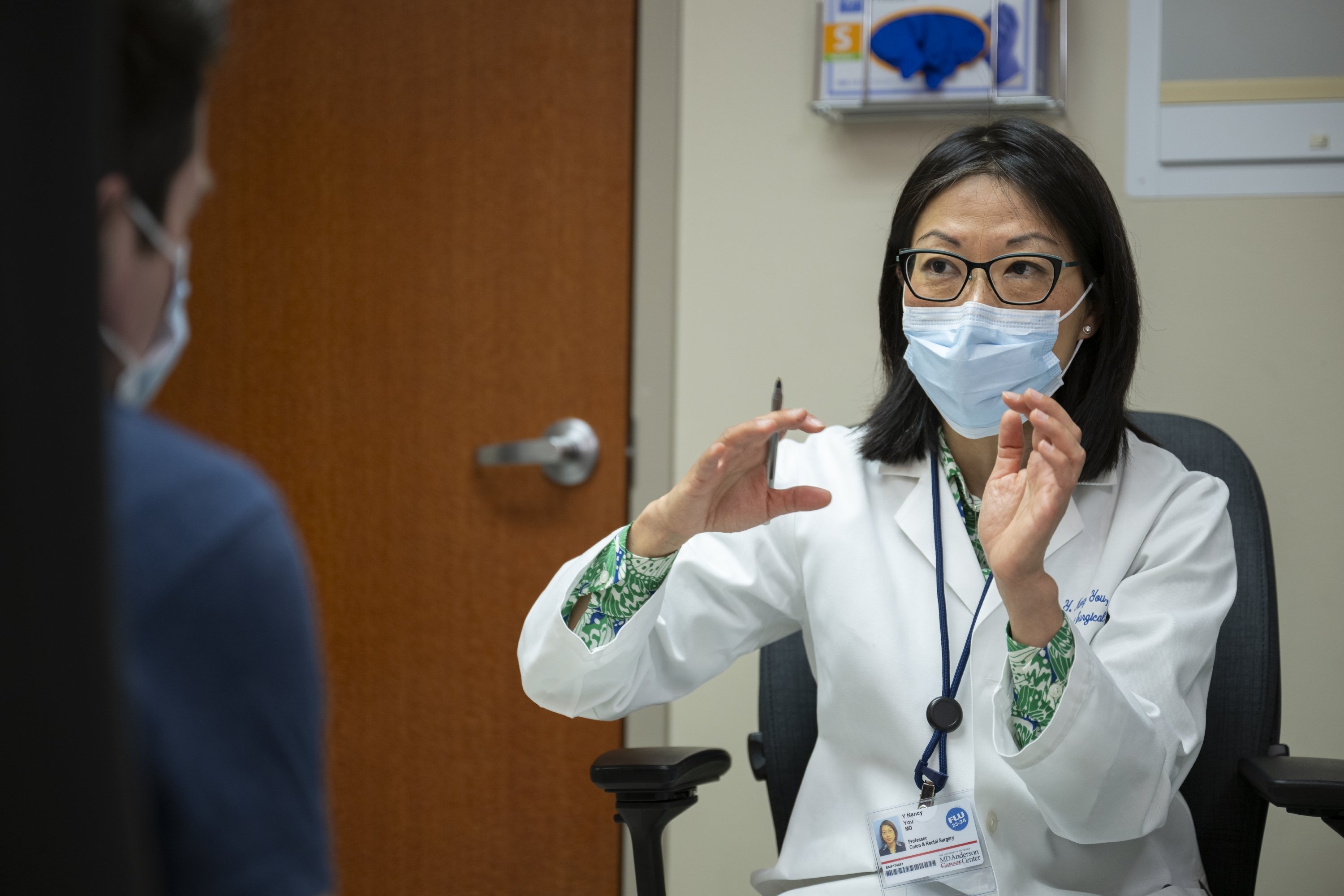- Diseases
- Acoustic Neuroma (14)
- Adrenal Gland Tumor (24)
- Anal Cancer (68)
- Anemia (2)
- Appendix Cancer (16)
- Bile Duct Cancer (26)
- Bladder Cancer (72)
- Brain Metastases (28)
- Brain Tumor (232)
- Breast Cancer (714)
- Breast Implant-Associated Anaplastic Large Cell Lymphoma (2)
- Cancer of Unknown Primary (4)
- Carcinoid Tumor (8)
- Cervical Cancer (158)
- Colon Cancer (166)
- Colorectal Cancer (118)
- Endocrine Tumor (4)
- Esophageal Cancer (44)
- Eye Cancer (36)
- Fallopian Tube Cancer (8)
- Germ Cell Tumor (4)
- Gestational Trophoblastic Disease (2)
- Head and Neck Cancer (12)
- Kidney Cancer (128)
- Leukemia (342)
- Liver Cancer (50)
- Lung Cancer (286)
- Lymphoma (278)
- Mesothelioma (14)
- Metastasis (30)
- Multiple Myeloma (100)
- Myelodysplastic Syndrome (60)
- Myeloproliferative Neoplasm (6)
- Neuroendocrine Tumors (16)
- Oral Cancer (100)
- Ovarian Cancer (172)
- Pancreatic Cancer (160)
- Parathyroid Disease (2)
- Penile Cancer (14)
- Pituitary Tumor (6)
- Prostate Cancer (146)
- Rectal Cancer (58)
- Renal Medullary Carcinoma (6)
- Salivary Gland Cancer (14)
- Sarcoma (238)
- Skin Cancer (296)
- Skull Base Tumors (56)
- Spinal Tumor (12)
- Stomach Cancer (64)
- Testicular Cancer (28)
- Throat Cancer (92)
- Thymoma (6)
- Thyroid Cancer (98)
- Tonsil Cancer (30)
- Uterine Cancer (80)
- Vaginal Cancer (16)
- Vulvar Cancer (20)
- Cancer Topic
- Adolescent and Young Adult Cancer Issues (20)
- Advance Care Planning (10)
- Biostatistics (2)
- Blood Donation (18)
- Bone Health (8)
- COVID-19 (362)
- Cancer Recurrence (120)
- Childhood Cancer Issues (120)
- Clinical Trials (632)
- Complementary Integrative Medicine (22)
- Cytogenetics (2)
- DNA Methylation (4)
- Diagnosis (232)
- Epigenetics (6)
- Fertility (62)
- Follow-up Guidelines (2)
- Health Disparities (14)
- Hereditary Cancer Syndromes (126)
- Immunology (18)
- Li-Fraumeni Syndrome (8)
- Mental Health (116)
- Molecular Diagnostics (8)
- Pain Management (62)
- Palliative Care (8)
- Pathology (10)
- Physical Therapy (18)
- Pregnancy (18)
- Prevention (918)
- Research (392)
- Second Opinion (74)
- Sexuality (16)
- Side Effects (604)
- Sleep Disorders (10)
- Stem Cell Transplantation Cellular Therapy (216)
- Support (402)
- Survivorship (322)
- Symptoms (182)
- Treatment (1786)
Flu and COVID-19 vaccines: What to know in 2022
3 minute read | Published September 15, 2022
Medically Reviewed | Last reviewed by an MD Anderson Cancer Center medical professional on September 15, 2022
The start of a new flu season often brings questions, such as: “When should I get my shot?” And, “Is it OK to get my flu shot and another vaccine at the same time?”
With a new COVID-19 bivalent booster now available, you may have more questions than ever about getting your flu vaccine.
To find out what to know three years into the pandemic, we spoke with Georgia Thomas, M.D., who manages MD Anderson’s employee flu vaccination program.
What’s the best time to get a flu shot?
We’re entering flu season now, and doctors are starting to report confirmed cases, so I would say as soon as possible.
When should people time their flu shots in relation to a COVID-19 vaccine or booster? Is it better to get them at the same time or space them out?
There’s no need to delay getting either one. You can get them the same day if you’d like.
In fact, when you consider how busy we all are, I’d say if you have an opportunity to knock them both out at once, take it. Getting both shots is going to be your best chance of keeping yourself healthy, especially if we start seeing a resurgence of new COVID-19 variants or have a very active flu season.
You’ll need to wait a few months to get the new bivalent COVID booster, though, if you’ve:
- gotten the original COVID-19 booster recently, or
- recovered from a recent COVID-19 infection
Why is it important to also get the bivalent COVID-19 booster this flu season?
According to the most recent statistics I’ve seen, the majority of all cases in the U.S. are still being caused by the BA.4 and BA.5 omicron subvariants. So, it’s great that we now can get a COVID-19 booster dose that specifically protects against those variants.
The goal of vaccination is not necessarily to prevent all infection, but to prevent severe infection and death. And these bivalent boosters are doing just that.
Is it safe for cancer patients in active treatment to get the flu and COVID-19 vaccines?
Yes, both the COVID-19 and flu vaccines are safe for cancer patients. Patients in active treatment should talk to their care teams to determine the best timing to ensure they’ll benefit most from these vaccines.
If you’re receiving chemotherapy, for instance, you might need to wait until your blood counts are higher, so that your body can mount an effective immune response to the vaccine.
Is there any special flu vaccine and COVID-19 booster guidance for immunocompromised people?
Immunocompromised patients should consult their care teams for guidance.
The first year of the COVID-19 pandemic, there were almost no flu cases at all. This was probably due to a combination of governmental lockdowns, limited travel, social distancing, mask wearing and hand hygiene. Everything we did to prevent the spread of COVID-19 that year also protected us against the flu.
So, if you’re immunocompromised or you live with someone who is, keep doing those things. Personal precautions like hand washing, physical distancing and wearing a mask will help protect you against whatever subvariant of COVID-19 is on the horizon, as well as whatever strain of flu is most prevalent this year.
What’s the most important thing you want people to remember about vaccinations this year?
Everyone needs a flu shot. I also encourage anyone who’s eligible to get the bivalent COVID-19 booster as soon as possible. The very best way to protect yourself is by getting both of these vaccines.
Request an appointment at MD Anderson online or by calling 1-877-632-6789.
Related Cancerwise Stories

The very best way to protect yourself is by getting both of these vaccines.
Georgia Thomas, M.D.
Physician





